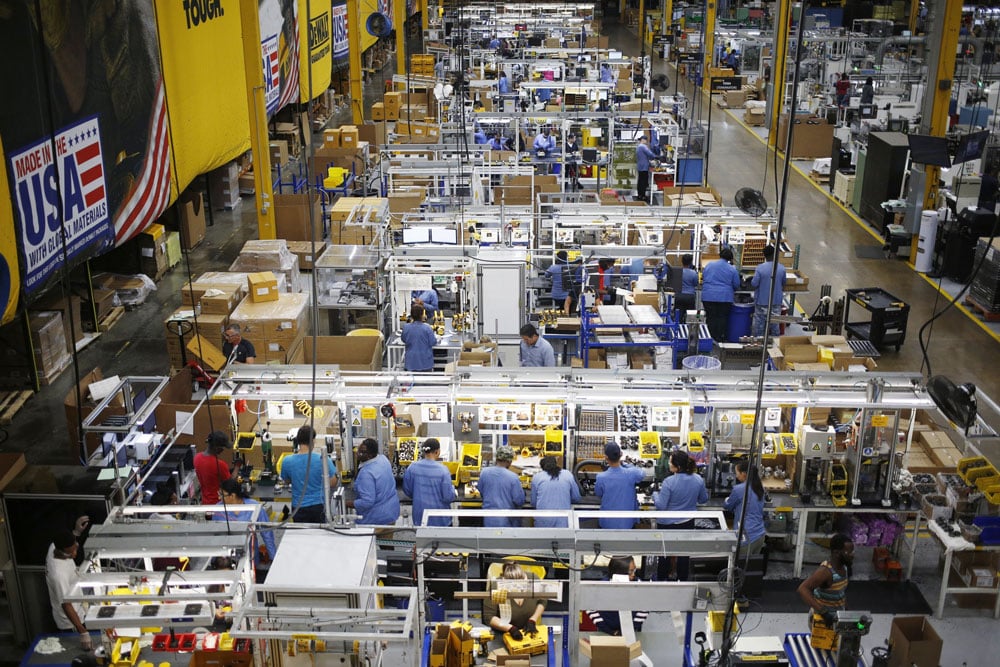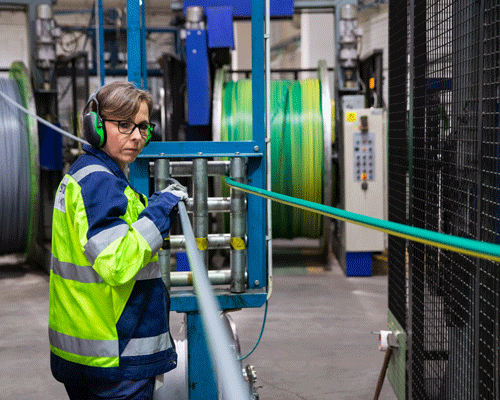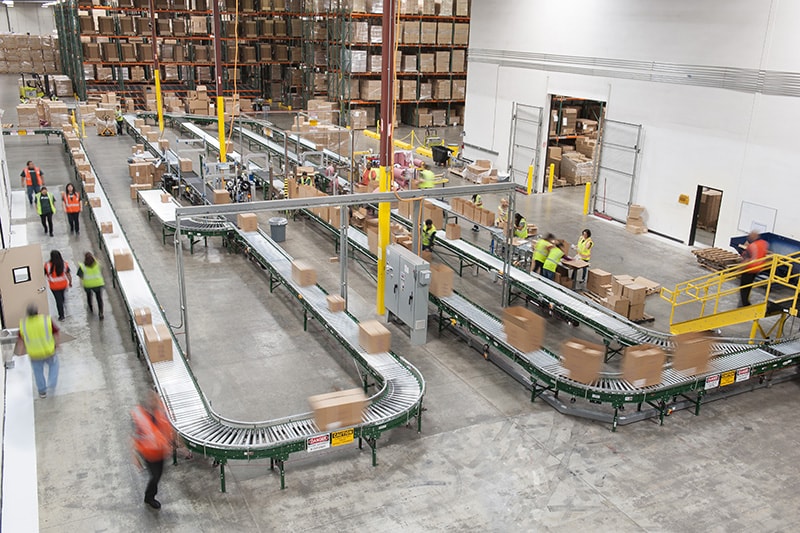If you’re in HR or Operations, you’ve probably noticed that the old way of managing front-line workers just isn’t cutting it anymore, especially in manufacturing. In this podcast episode on Shift Talk, I sat down with Bill Good, VP of Supply Chain at GE Appliances, to hear how they’re tackling flexible schedules. With MyWorkChoice, GE Appliances was able to implement a flexible hybrid workforce model to recruit and retain workers. Explore our flexible workforce solutions to see how we can help your facility achieve the same success.
A Workforce That Wants Something Different
“We’re seeing a generational shift in what people want out of work,” Bill told me during the episode, and he’s spot on. Gone are the days when manufacturing workers were happy to punch the clock, work overtime, and go home. Today’s workforce—Millennials, Gen Z, parents, students, semi-retirees—is all about work-life balance. And if you’re in HR or Operations, you know how challenging it can be to meet those expectations.
Bill explained that even before the pandemic, GE Appliances had already noticed changes in the workforce. However, the pandemic accelerated retirements for Baby Boomers and Gen X employees, leading to a sudden shift in workforce demographics. “What we saw was a fast transition to a different population, a different mindset post-pandemic,” Bill said. Today’s workforce is all about work-life balance. Schedule a free flexibility roadmap call to learn how flexible scheduling can help you attract and retain top talent.
Back in 2018, GE Appliances could post a job opening and quickly close it because thousands of applicants would apply. Now, as Bill described, “we leave the website up and take applications ongoing” because far fewer people are seeking manufacturing jobs today. And the mindset of those who are looking? Very different from what it was even five years ago.
“The companies that innovate with flexibility are the ones that will thrive. Those that don’t? They’re going to struggle,” Bill said, and it’s hard to argue with that. Flexibility isn’t just a perk—it’s a necessity in today’s job market.
Flexible Schedules at GE Appliances
GE Appliances implements flexible work options through MyWorkChoice and achieves increased retention, tenure, and pro-active absenteeism management.
Flexible Schedules Over Overtime
The big question is: What are today’s workers actually looking for? Bill shared some thoughts about what he’s been seeing. “When you look back at the post-World War II generation, their mindset was, ‘How do I get ahead? How do I advance my family?’” Bill said. “They were all about overtime, working five, six days a week. But today’s workforce? They’re looking for more balance between work and personal life.”
One striking difference is that many younger workers are not interested in working more than three or four days a week. The days of working 50-60 hours and striving to “get ahead” aren’t top of mind for most workers today. Instead, they’re prioritizing flexibility. As Bill pointed out, “They want a work environment that looks and feels right, and they want control over their schedules.” Workers are prioritizing flexibility and control over their schedules. Schedule a free roadmap call to start building a scheduling model that fits your workforce’s needs.”
Manufacturing, which once boasted that one in three jobs in the U.S. was in the industry, is now less attractive. Today, less than 10% of U.S. jobs are in manufacturing, and younger workers are gravitating toward retail, food service, and tech brands like Starbucks, Amazon, and Apple. Manufacturing, on the other hand, is often viewed as difficult, physically demanding, and “dirty.”
“That perception of manufacturing is still in the minds of younger generations,” Bill noted, “but that’s not necessarily true anymore. We’ve invested in automation, robotics, and upskilling workers. Manufacturing jobs today can look very different.”
Rebranding Manufacturing for New Generations
Bill and I also talked about the perception problem manufacturing faces. Younger generations don’t necessarily see manufacturing as a viable or exciting career path. “They’re comparing entry-level pay at Chick-fil-A or Amazon to what they can make in manufacturing,” Bill said. “What they don’t realize is the career growth potential in manufacturing far exceeds what they’ll find in retail or food services.”
Bill shared a personal story that highlights just how much opportunity manufacturing offers. “Both I and Luther, our plant manager at Roper, started out as hourly associates. Now, I’m VP of Supply Chain, and Luther is a plant manager. There’s a clear career path in manufacturing, but younger workers don’t always see that upfront.”
Ontop of competitive pay, manufacturing also offers strong benefits and opportunities for upskilling. Bill mentioned that GE Appliances provides education reimbursement, covering a large portion of his own college education and that of many others. “You can start out in manufacturing without a degree and still make $20, $30, $40 an hour,” Bill emphasized. “There are skilled trades jobs, quality technician jobs—all of which offer great pay and benefits.”
What Can You Do? Practical Steps for Introducing Flexible Schedules
So, how do you actually make flexible schedules work in manufacturing? Here are some practical steps to get started:
- Start Small with Entry-Level Roles & Part-Timers: You don’t have to overhaul your entire scheduling system overnight. Start by offering part-time shifts, like GE Appliances did with their GEA Two Day program. By introducing two or three-day work weeks, you’ll attract students, parents, and retirees who want more control over their time without committing to full-time hours.
- Let Workers Choose Their Own Shifts: Flexibility doesn’t just mean offering fewer hours. Through MyWorkChoice, GE Appliances allowed workers to select shifts that fit their personal schedules. This shift in control is huge for today’s workforce, who value autonomy over rigid structures. You’ll be surprised how quickly people respond when they can choose shifts on their terms.
- Offer Real Advancement Opportunities: Flexible schedules don’t mean a lack of growth. In fact, they can be a gateway to long-term careers in manufacturing. Make sure workers understand the clear career paths available to them, even if they start part-time. Highlight opportunities for upskilling, education reimbursement, and internal mobility.
- Challenge Traditional Mindsets: Change is hard, but the results are worth it. As Bill Good shared, there was initial skepticism about whether flexible schedules could work in a manufacturing setting. The key? Challenge outdated paradigms and be willing to experiment with new models. Once you see the success of these programs, your entire team will start to embrace the future of work.
About the Shift Talk Podcast
Shift Talk, is a podcast by MyWorkChoice where we talk about the real shift happening and hard conversations because we know the stakes are high in manufacturing and distribution. Your workforce is your most valuable asset, and without retention, you’re stuck in a cycle of hiring and losing people. It doesn’t have to be that way.
Subscribe to Shift Talk
Let’s make flexible work at your facility. Explore our pricing or schedule a free consultation to get started.








Share